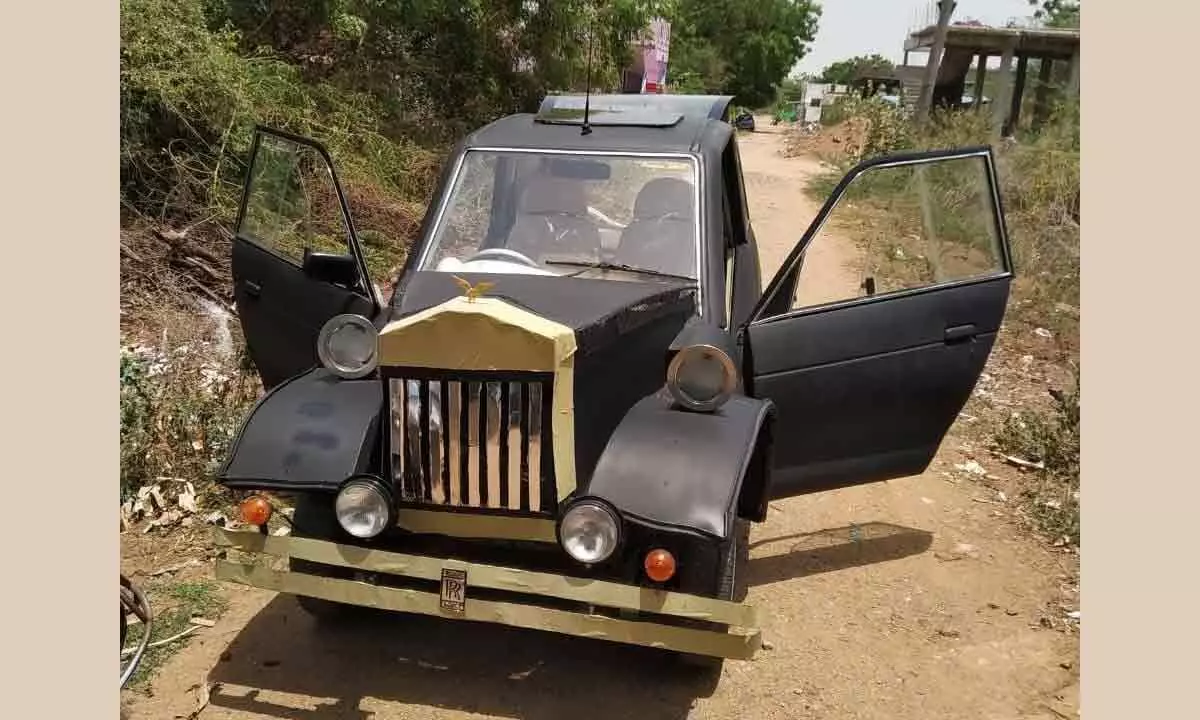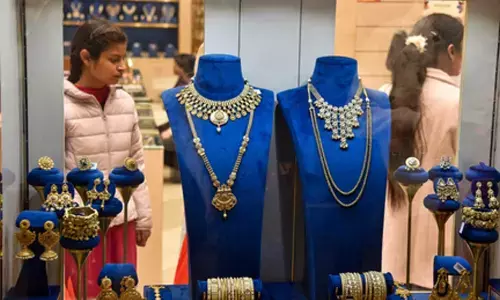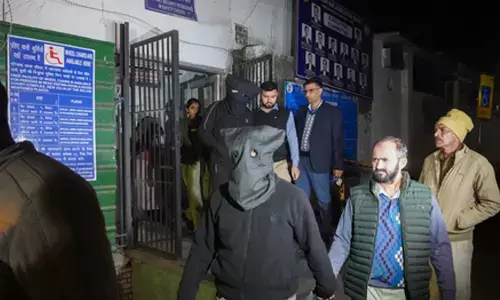Engineering student designs electric car

electric car designed by G Rakesh in Khammam
Taking a cue from the market trend, a B Tech graduate in Khammam has designed a retrofitted electric car that can give a range of around 300 km with fully charged batteries.
Khammam: Taking a cue from the market trend, a B Tech graduate in Khammam has designed a retrofitted electric car that can give a range of around 300 km with fully charged batteries. The operating cost for covering that distance will be about Rs 20 to 30 for charging the batteries.
"The vehicle I developed is basically a vintage model car redesigned and retrofitted with an electric motor and batteries to propel the car. Rs 3 lakh is spent in making the car," Garlapati Rakesh, who did his B Tech in mechanical engineering, told media persons here.
The four-seater vehicle is fitted with a 15 kw motor and prismatic lithium batteries that consumes 5 to 10 units of electricity to get fully charged. There are four running modes in the car, reverse, normal, eco and fast mode. Reverse mode is for reversing the car, he said.
In normal mode, the vehicle can run with a speed up to 25 km per hour, in eco mode it moves with a speed of up to 50 kmph, and in fast mode the car reaches its top speed of 80 kmph. In each mode, the vehicle acceleration is limited to the specified speed limit.
The battery management system is paired with a mobile phone through Bluetooth and it provides the complete status of each cell in the battery like its life, charging level and others. In case of any errors and defects in the battery it alerts the user to take remedial action, Rakesh explained.
Entire equipment and parts used in making the car are procured from manufacturers certified by Automotive Research Association of India (ARAI) and International Centre for Automotive Technology (ICAT), which test and approve standards for electric vehicles (EVs). Rakesh informed that it took him one month to design and fabricate the vehicle and it is entirely hand-made. He recently demonstrated the vehicle performance before Transport Minister Puvvada Ajay Kumar, who appreciated the engineer's ingenuity. The engineer now plans to establish a start-up firm in Khammam to redesign and convert fossil fuel vehicles into EVs as well as to manufacture new electric vehicles by employing a few engineering graduates. The minister assured to support his initiative, he added.
In 2019, Rakesh also made an electric-bike, the battery of which gets charged continuously with a dynamo fitted to the vehicle. He received appreciation from IT Minister KT Rama Rao and others for his innovation.









